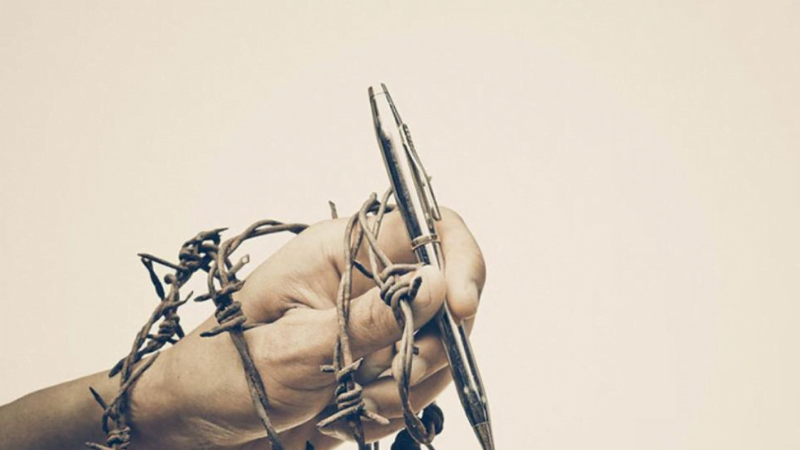In its annual prison census, the Committee to Protect Journalists (CPJ) documented 24 killings of journalists and has confirmed a record-breaking number of 293 journalists currently in prison.
Out of those 293 journalists, almost half are in prison in the top five worst-offending countries alone. These countries are China, Myanmar, Egypt, Vietnam and Belarus, with 50, 26, 25, 23 and 19 journalists in prison in each country, respectively.
The census report, compiled by CPJ’s editorial director Arlene Getz, details how “a growing intolerance of independent reporting” across the world has escalated year after year.
While China remains the worst offender in terms of detentions, the highest number of targeted killings occurred in India, with four journalists killed in retaliation for their work. In 2021, a total of 19 journalists across the globe were killed in an act of retaliation, three were killed in conflict zones, and two were killed while covering street protests.
“Emboldened autocrats are increasingly ignoring due process and flouting international norms to keep themselves in power,” the report states.
“In a world preoccupied with COVID-19 and trying to prioritise issues like climate change, repressive governments are clearly aware that public outrage at human rights abuses is blunted and democratic governments have less appetite for political or economic retaliation,” it adds.
The report provides a snapshot of journalists currently in prison, excluding the much larger number of journalists who were arrested, convicted and released throughout the year.
While China remains the worst offender due to its abuse of anti-dissidence charges like “picking a quarrel and stirring up trouble”, the report also highlights how countries like Myanmar and Egypt were outright trying to deflate the CPJ’s efforts to document press freedom abuses.
Myanmar, for example, released journalists from detention ahead of the CPJ’s annual census, while Egypt released journalists from prison “under conditions that deny the very notion of freedom”.
Turkey, which up until a few years ago was one of the worst jailers in terms of press freedom, has “effectively eradicated the country’s mainstream media” following the failed 2016 coup, the CPJ noted, warning that “it would be naïve to see lower prisoner numbers as a sign of a change of heart toward the press”.
Similarly, Saudi Arabia, also known as one of the world’s most repressive regimes when it comes to press freedom, registered a decline in the number of journalists detained due to the chilling effect of Jamal Khashoggi’s brutal murder in 2018.
“Khashoggi’s murder is likely to have silenced many journalists more effectively than any fresh wave of arrests. In addition, authoritarian leaders are increasingly finding more sophisticated ways to block independent reporters and outlets – notably internet shutdowns and increased surveillance through high-tech spyware – than keeping them behind bars,” the report reads.
Belarus has seen one of the sharpest declines in press freedom since the CPJ first started taking tracking data on the imprisonment of journalists in 1992. Belarusian dictator Aleksandr Lukashenko “outrageously” diverted a RyanAir flight earlier this year in order to arrest the journalist Roman Protasevich.
Besides the more military-style crackdowns from similar autocratic regimes across the world, the CPJ also flagged the increase in journalists being jailed with trumped-up charges related to vaguely-worded ‘cybercrime’ laws. The CPJ’s report cites an example in which two journalists were jailed in Benin over such charges, highlighting how the country allows for criminal prosecution for any content published online.












